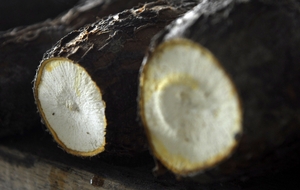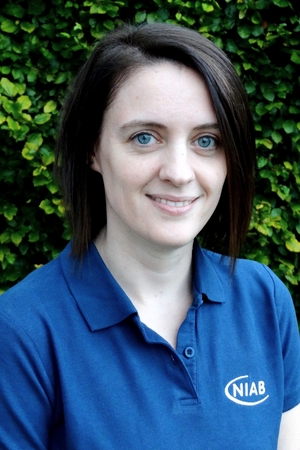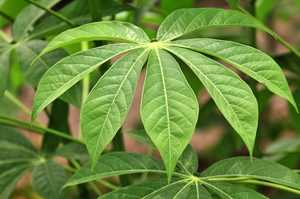
UK crop researchers could boost yields of a vitally important global food crop by going back to its wild relatives to find new sources of disease resistance.
Cassava (Manihot esculenta) is an important staple for over 500 million people worldwide, grown for food and known in its dried form as tapioca, as animal feed and as a fuel source. The crop’s importance is set to grow with changing climates, but so too will threats from a number of pests and diseases which can devastate yield.
NIAB in Cambridge, alongside Scotland’s Rural College (SRUC) in Edinburgh and the International Center for Tropical Agriculture (CIAT) in Colombia, is revealing naturally occurring diversity in underused or wild types of cassava to help plant breeders develop cassava varieties which are more robust to the effects of climate change.
The work will be supported by the funding of two research projects by the Biotechnology and Biological Sciences Research Council (BBSRC) - £376,000 through the Global Challenges Research Fund’s (GCRF) Foundation Award for Global Agriculture and Food Systems Research and £259,000 through the Newton-Caldas programme.
 Project leader, Dr Sarah Dyer, from NIAB said: “Cassava can grow well under poor conditions, with low rainfall and in poor quality soils, making it an important food security crop. It also produces more carbohydrate per square metre than any other crop, including wheat, rice and maize. Our research should provide breeders with new tools to help focus their efforts to improve this globally vital but notoriously difficult-to-breed crop.”
Project leader, Dr Sarah Dyer, from NIAB said: “Cassava can grow well under poor conditions, with low rainfall and in poor quality soils, making it an important food security crop. It also produces more carbohydrate per square metre than any other crop, including wheat, rice and maize. Our research should provide breeders with new tools to help focus their efforts to improve this globally vital but notoriously difficult-to-breed crop.”
CIAT’s genebank contains over 6,000 different cassava types, including traditional lines, commercial varieties and wild species from around the world. The Newton-Caldas project will enable NIAB and CIAT to explore the naturally occurring genetic diversity within the collection and make this information available to breeders and researchers via tools developed in partnership with SRUC.
The GCRF Foundation Award project will enable a set of 100 wild relatives of cassava from 24 different species to have their genomes sequenced to identify genetic variation. They will then be screened to evaluate their resistance to white fly, bacterial blight and cassava frogskin disease which can cause reduction in root harvests of 60-90%. This information will be made available to aid researchers and breeders on their hunt for new sources of resistance to these globally important pests.
 Peter Wenzl from CIAT said: “This new partnership brings together the world’s largest collection of cassava genetic resources at CIAT with cutting-edge genetic tools and technologies at UK institutions. It’s a big step towards unlocking cassava genetic resources for the benefit of hundreds of millions of people relying on the crop for their livelihoods.”
Peter Wenzl from CIAT said: “This new partnership brings together the world’s largest collection of cassava genetic resources at CIAT with cutting-edge genetic tools and technologies at UK institutions. It’s a big step towards unlocking cassava genetic resources for the benefit of hundreds of millions of people relying on the crop for their livelihoods.”
David Marshall from SRUC said: “Collaboration is vital to tackle the most pressing challenges facing society. SRUC is delighted to be part of this innovative programme that will provide the building blocks for global food and nutrition security.”
